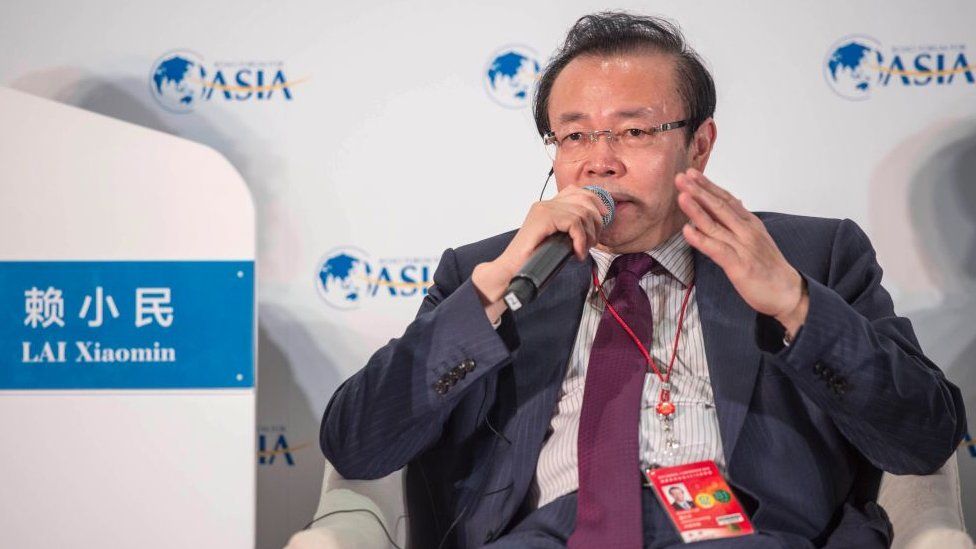

Shares in scandal-hit China Huarong Asset Management have closed down by 50% after a state-backed bailout of almost $6.6bn (£4.9bn).
The company’s shares resumed trading on Wednesday after a nine-month suspension on the Hong Kong Stock Exchange.
Huarong rocked Asian stock markets in August last year when it revealed a record loss of close to $16bn.
The firm’s former chairman Lai Xiaomin was executed last year after being found guilty of corruption.
Huarong, one of four state-owned distressed-debt managers, halted trading in its shares on 1 April last year.
The move came after the firm missed a deadline at the end of March to file its earnings for 2020.
That sparked a rout in Huarong’s US dollar-denominated bonds that spread to the bonds of other Chinese companies.
In August, Huarong, which counts China’s finance ministry as its largest shareholder, announced a profit of $24.5m for the first half of 2021 and an almost $16bn loss for 2020.
The company had earlier in November said that it would receive a cash injection of $6.59bn from a group of state-backed investors as part of its rescue plan.
Huarong, which is majority-owned by China’s Ministry of Finance, was set up in 1999 to take bad debts off the country’s largest state-owned banks.
During Mr Lai’s time as chairman the asset manager expanded far beyond its original remit.
The crisis that engulfed the firm was seen by investors as a test of the Chinese government’s approach to corporate failures.

Mr Lai was arrested in 2018 on charges of taking 1.8bn yuan (£210m, $280m) in bribes over a 10-year period.
His death sentence was heavily criticised, with rights group Human Rights Watch saying China was “clearly taking a major step backwards.”
It was one of the most severe sentences to stem from President Xi Jinping’s anti-corruption drive. – bbc.com
Sorry. No data so far.

